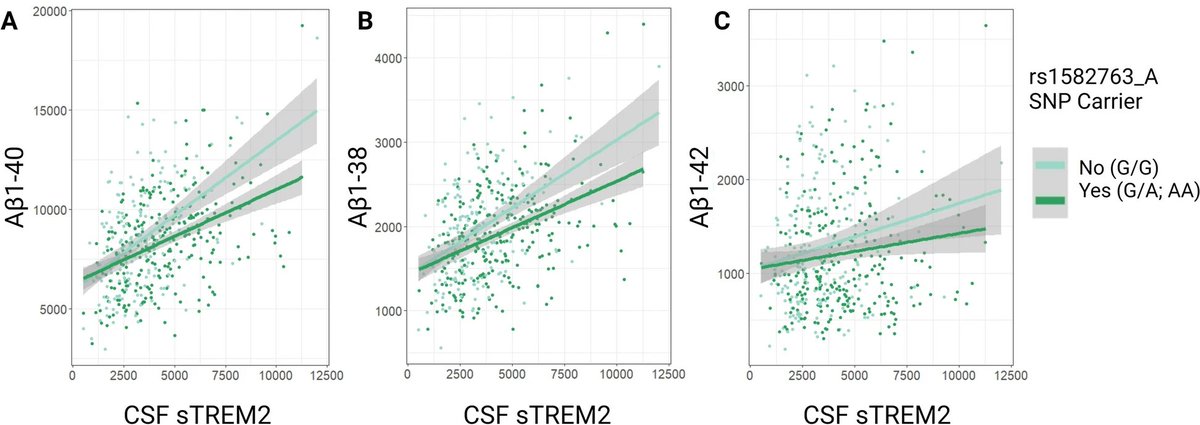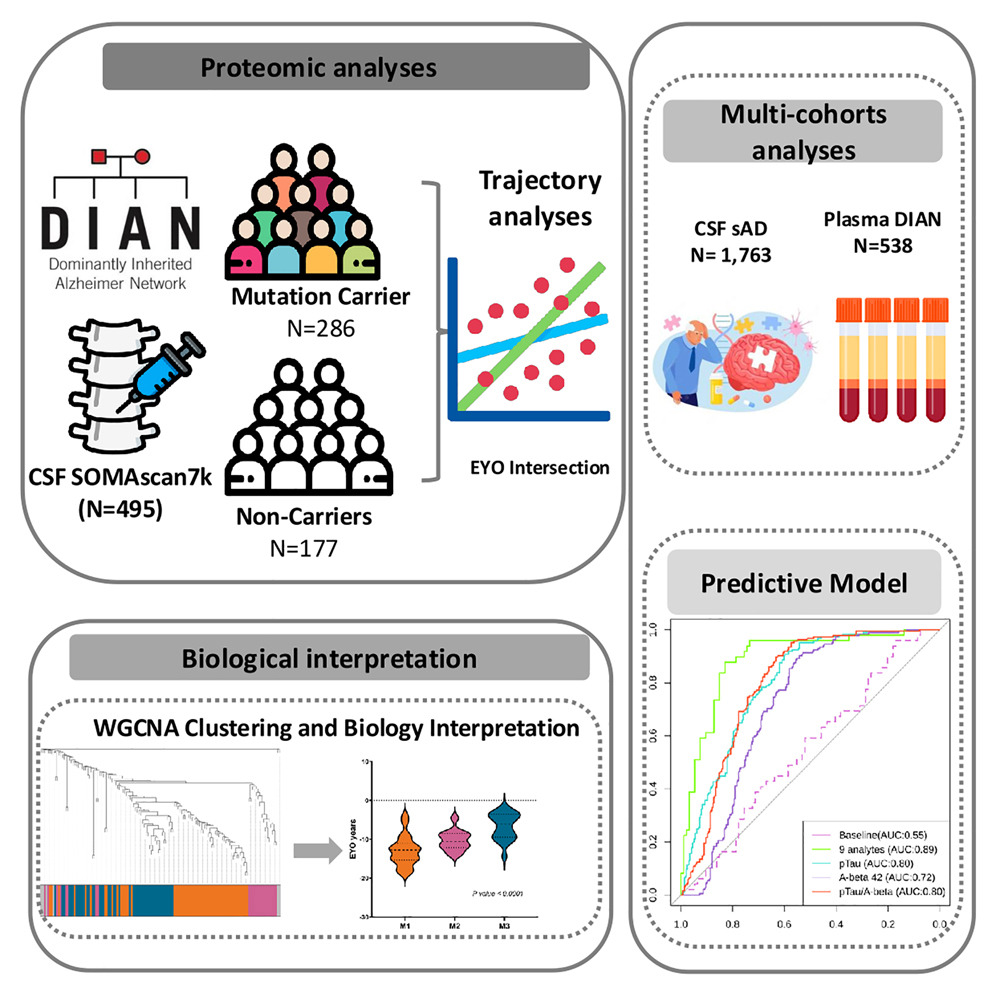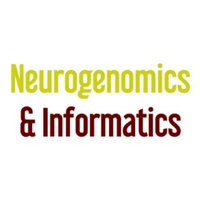
NeuroGenomics and Informatics Center
@neuro_genomics
Our goal is to understand the biology of neurodegeneration by using high-dimensional omic data & functional genomic at @WUSTLmed
ID: 1041320067416305664
https://neurogenomics.wustl.edu 16-09-2018 13:37:05
373 Tweet
466 Followers
133 Following

The NGI Center funded a pilot project to Drs. Dickson, Cooper and Sardiello to Monitoring Lysosomal Content and Signaling in Lysosomal Storage Disorders. (sites.wustl.edu/neurogenomics/…) This funding led to a larger collaborative large, for $8 million in funding. Michael Wu Hope Center @WUSTL

Alzheimer's Disease risk variants influence memory phenotypes in #DownSyndrome. We used Polygenic Risk Scores to compare the genetic architecture of Early vs late, and familial and sporadic, and DS. Great collaboration with the AABC-DS consortium Alzheimer Biomarkers Consortium — Down Syndrome alz-journals.onlinelibrary.wiley.com/doi/10.1002/al…


Very glad to be part of this new effort in collaboration with the WashU Medicine Neurology . We have already collected DNA, RNA and plasma for comic analyses in around 3000 European Ancestry and 50 African ancestry Parkinson's disease cases and looking forward to extending it further.

The NeuroGenomics and Informatics Center Test Account is recruiting a tenure-track faculty position to join a multidisciplinary team of investigators using human genomics and multi-omic data to understand the biology of #Alzheimers and other neurodegenerative traits. neurogenomics.wustl.edu/funding/career…


The NeuroGenomics and Informatics Center Test Account is recruiting a tenure-track faculty position to join a multidisciplinary team of investigators using human genomics and multi-omic data to understand the biology of #Alzheimers and other neurodegenerative traits. neurogenomics.wustl.edu/funding/career…




Excited to team up with Yang Eric Li and Tristan Qingyun Li to study microglial enhancers in Alzheimer's disease. We are so grateful for the generous support from NeuroGenomics and Informatics Center! Can't wait to get started!



Heading out tomorrow for #AAIC24 and #PIA day. Come check out what we are doing at the intersection of ADRD, genomics, multi-omics, sex dimorphism, and ancestry! Also delighted to announce I am #ALZFunded Alzheimer's Association with an AARG to advance our X chromosome work in AD *& PD!
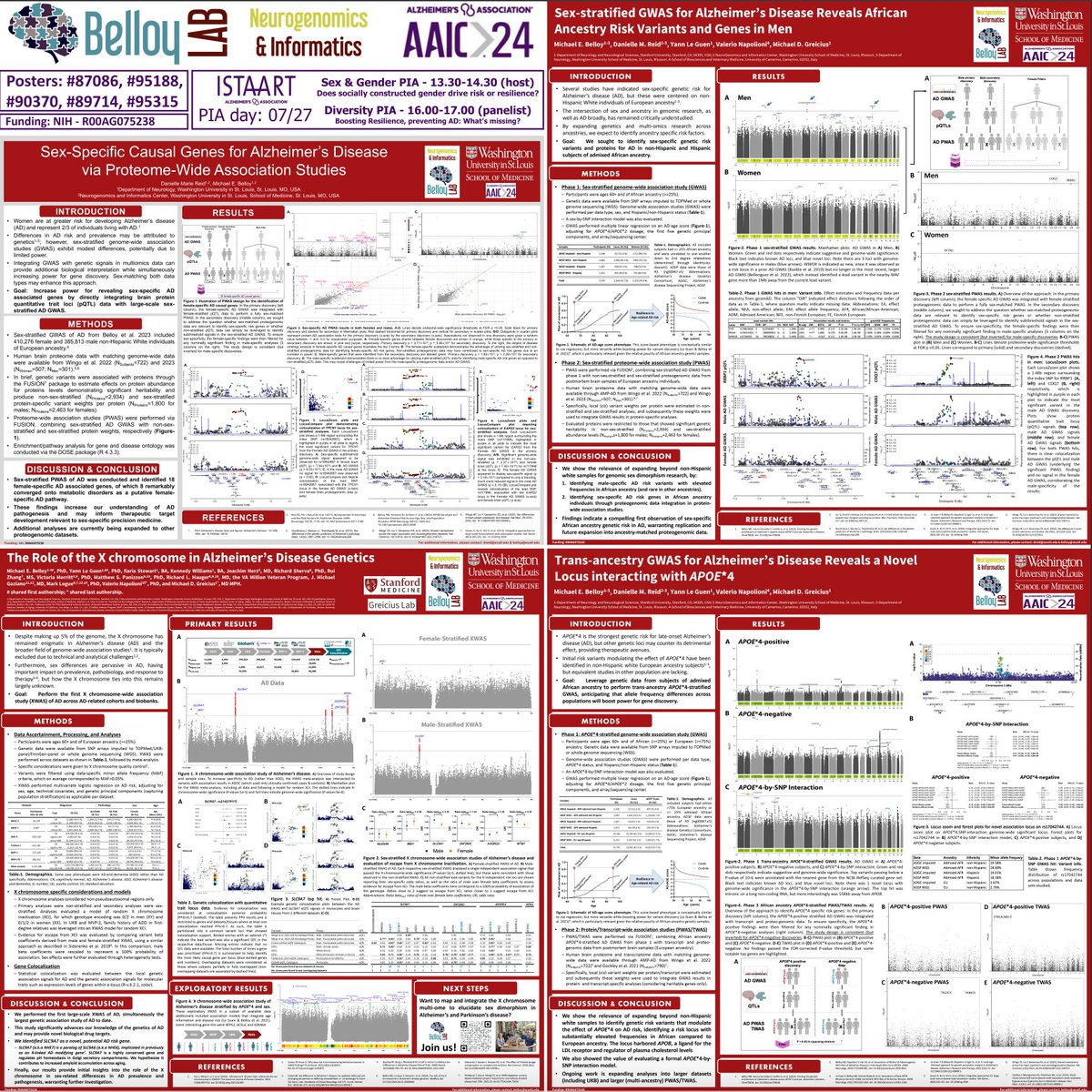

We leverage human multi-omic data to identify causal and druggable targets and to create novel predictive models for #Alzheimers . Come to use the four talks and four posters at the #AAIC24. neurogenomics.wustl.edu/the-neurogenom…. @WUADRC NeuroGenomics and Informatics Center WashU Medicine Neurology




Amazing work by Laura_Ibanez and her lab identifying non-proteomics biomarkers, specifically circular RNAs for #Parkinsons, with AUC>0.95!! Impressive. Very pioneering work with important implications WashU Medicine Neurology. Supported by michaeljfox.org nature.com/articles/s4153…


In collaboration with Laura_Ibanez we benchmarked the AlamarBio platform demonstrating that reliable measures key #alzheimers biomarkers in CSF and plasma with an accuracy similar to other well validated platforms WashU Medicine Knight ADRC WashU Medicine Neurology alz-journals.onlinelibrary.wiley.com/doi/10.1002/al…
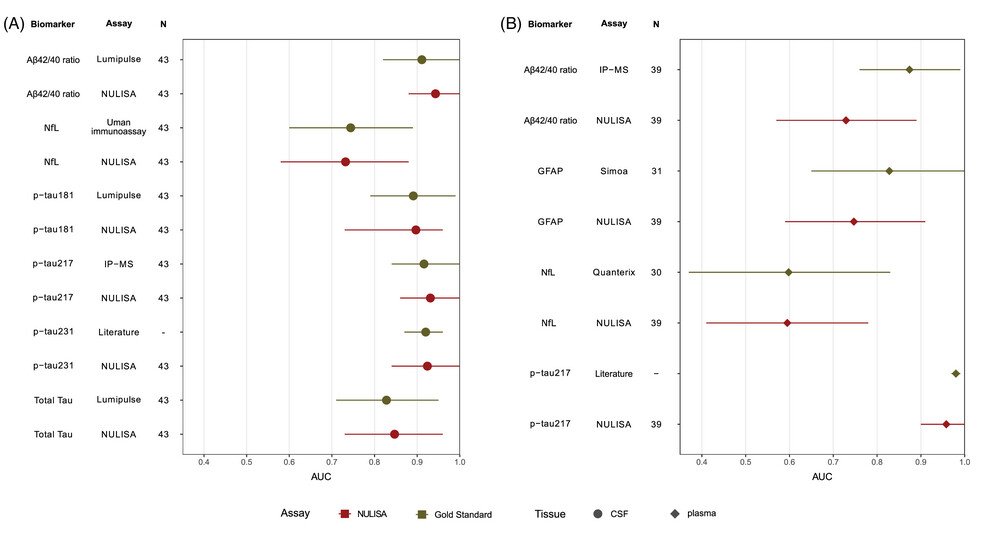

Join WashU Medicine Genetics this Thursday (Dec. 12, 12pm CST) in Connor Auditorium when Dr. Alison Goate presents “Human genetics implicates Efferocytosis as an Alzheimer’s disease risk hub”, hosted by Dr. Peter Jin Sheng Chih Jin !
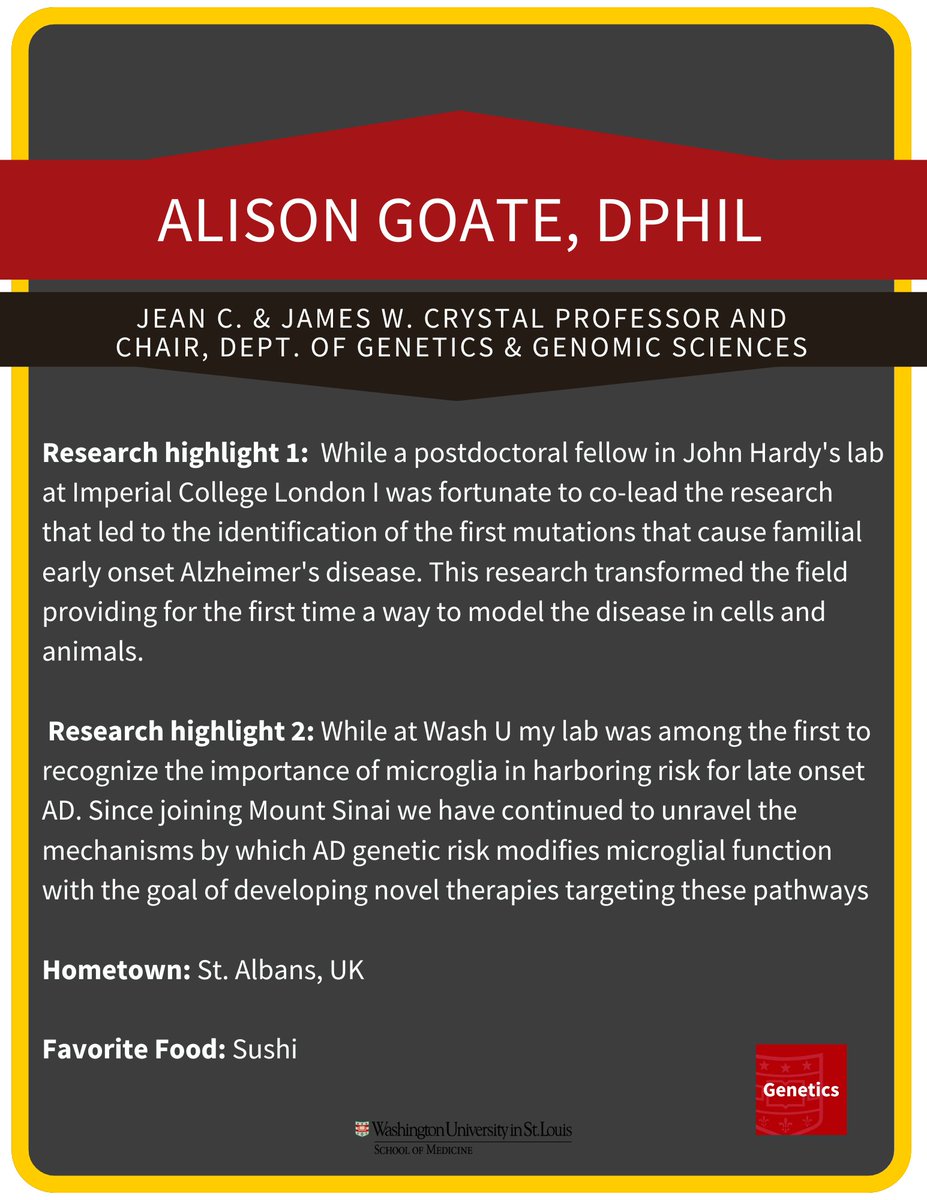

Integrating GWAS and protein quantitative trait loci, scientists link 38 proteins to Alzheimer’s, 24 of them new. @WUSTL Nature Genetics Carlos Cruchaga ow.ly/hX7O50UoJTE
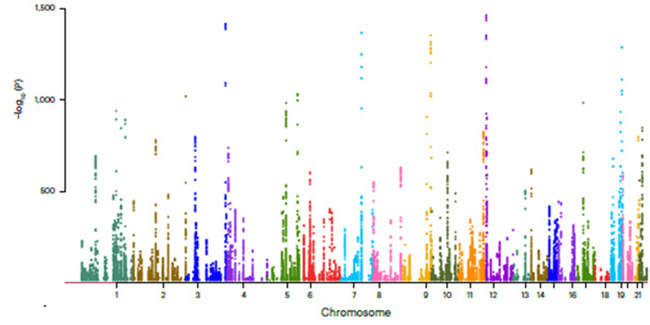


Around 5-10% of the #Alzheimers cases are early-onset, and are understudied. In a multiancestry genetic study of Early-onset AD we identified eight novel genes that point to dysregulation of glutamate, immune activation WashU Medicine Knight ADRC WashU Medicine Neurology alz-journals.onlinelibrary.wiley.com/doi/10.1002/al…


